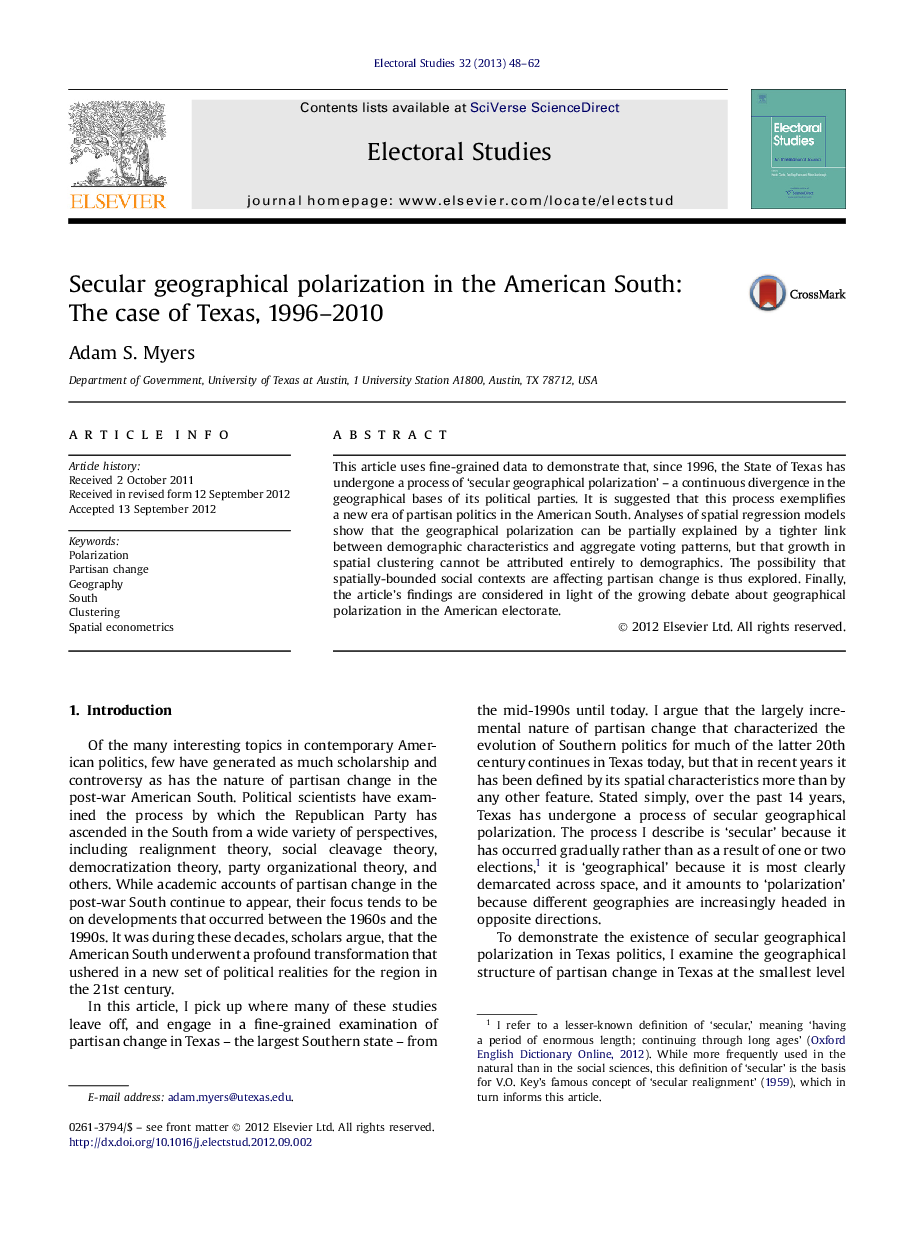| کد مقاله | کد نشریه | سال انتشار | مقاله انگلیسی | نسخه تمام متن |
|---|---|---|---|---|
| 1052158 | 946375 | 2013 | 15 صفحه PDF | دانلود رایگان |

This article uses fine-grained data to demonstrate that, since 1996, the State of Texas has undergone a process of ‘secular geographical polarization’ – a continuous divergence in the geographical bases of its political parties. It is suggested that this process exemplifies a new era of partisan politics in the American South. Analyses of spatial regression models show that the geographical polarization can be partially explained by a tighter link between demographic characteristics and aggregate voting patterns, but that growth in spatial clustering cannot be attributed entirely to demographics. The possibility that spatially-bounded social contexts are affecting partisan change is thus explored. Finally, the article's findings are considered in light of the growing debate about geographical polarization in the American electorate.
► Fine-grained data are used to examine geographical polarization in Texas since 1996.
► The geographical bases of Texas parties have been continuously diverging.
► Electoral patterns are due to demographic factors, but spatial context may also matter.
► Party conflict in the South is increasingly arrayed along an urban–rural cleavage.
► The thesis of national geographical polarization should not be quickly dismissed.
Journal: Electoral Studies - Volume 32, Issue 1, March 2013, Pages 48–62